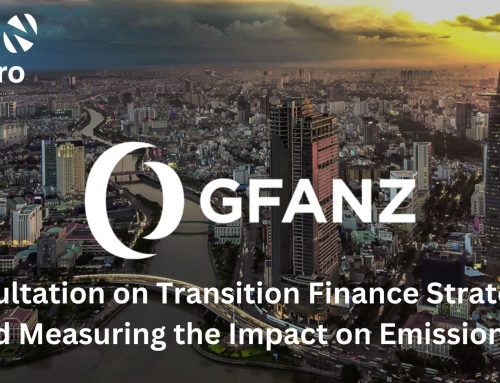The Treasury launched a Call for Evidence to inform the development of the financial services sector plan, a key part of the government’s modern industrial strategy.
B4NZ Head of Policy and Public Affairs, Elena Pérez Celis responded to the Call for Evidence. Read some of our responses below.
Question 5.5: In the UK’s sustainable finance framework, as set out in the Chancellor’s Mansion House package, do you see barriers or gaps that would support the growth and competitiveness of the UK sustainable finance market?
The UK’s sustainable finance framework outlined in the Chancellor’s Mansion House package addresses several critical areas to drive investment in the green transition and deliver economic growth. However, there are notable barriers and gaps that could hinder the growth and competitiveness of the UK’s sustainable finance market:
UK Green Taxonomy
The proposed consultation on the value of a UK Green Taxonomy delays the publication and implementation of it, which was initially expected to provide concrete guidance. A clear taxonomy is crucial for aligning financial flows with sustainability goals, and its absence risks uncertainty for investors and businesses. Delays in implementing robust frameworks can diminish investor confidence and stifle market growth. The value of a Green Taxonomy is well-documented across multiple studies. A taxonomy helps address investor and business uncertainty by providing clear, consistent definitions of what constitutes “green” or “sustainable.” For instance, the OECD suggests that nations with robust taxonomies attract more international capital by creating a standardised system for evaluating green investments.
Moreover, a Green Taxonomy helps mitigate greenwashing, a significant concern for both investors and consumers. According to research from the Grantham Research Institute, green taxonomies are essential tools in providing clarity and accountability to prevent businesses from making misleading sustainability claims. This is particularly important as demand for sustainable investments grows. In fact, a 2023 report by PwC found that a majority of investors prioritise clarity in sustainability criteria when making decisions, highlighting that a taxonomy can provide this much-needed transparency.
To ensure the consultation adds value and drives the growth of sustainable finance in the UK, it is essential to accelerate the decision-making process. This can be achieved by focusing on a quick but thorough implementation of the taxonomy, engaging a broad range of stakeholders, and aligning the taxonomy with the broader sustainable finance framework, including ESG reporting and transition plans. The UK has the potential to strengthen its competitive edge in the sustainable finance sector, but this requires decisive action and a clear roadmap moving forward. We hope the UK Government accelerates the publication of a well-defined taxonomy to align with international standards (e.g., EU taxonomy) and provide clarity for investors and companies operating cross-border.
Announcing the intention to consult on streamlined sustainability disclosures for economically significant companies
Streamlining sustainability disclosures for economically significant companies is an important step toward increasing transparency and aligning business practices with sustainability objectives. However, the success of this initiative will largely depend on how the definitions of “economically significant” and “streamlined” are articulated. A key challenge is balancing the need for comprehensive disclosures with the burden on companies, particularly SMEs, that may lack the resources to comply with complex reporting requirements. The Government should also focus on simplifying reporting requirements for SMEs and creating a realistic and proportionate guidance to ensure they have access to finance and do not get left behind in the transition.
Consulting in the first half of next year on how best to take forward the manifesto commitment on transition plans
While this consultation is welcome, existing frameworks like the Task Force on Climate-related Financial Disclosures (TCFD) and the guidance from the Transition Plan Taskforce (TPT), among others, already provide comprehensive templates for what credible transition plans should entail. These include aligning with the Paris Agreement’s 1.5°C goal and outlining clear decarbonisation pathways. The TPT’s guidance already addresses core elements, such as governance, metrics, and actionable steps for achieving net-zero targets.
Moreover, the urgency of climate action demands faster progress. There is a need for immediate and decisive action to maintain alignment with global climate goals. Prolonged consultations risk delaying mandatory transition plan requirements, undermining the UK’s leadership in green finance and its net-zero commitments.
The consultation should therefore focus on practicalities: establishing clear implementation timelines, addressing any sector-specific challenges, and providing support mechanisms, particularly for SMEs.
Publishing a consultation response and draft legislation to bring ESG ratings providers into regulation
The regulation of ESG ratings providers is necessary to increase the credibility and reliability of ESG assessments, which have often been criticised for inconsistency and lack of transparency. Recent reports from Harvard Law School and The Economist have noted that differing methodologies among ESG rating agencies have caused confusion among investors, with a significant risk of greenwashing. Regulating ESG ratings could help standardise methodologies, ensure transparency, and make ESG ratings more comparable across firms. Additionally, bringing ESG ratings into the regulatory fold could increase investor confidence and drive more capital into genuinely sustainable activities. However, care must be taken not to stifle innovation in ESG evaluation or reduce flexibility in how ratings are determined. A balanced approach, similar to the EU’s proposal to regulate ESG ratings under the European Securities and Markets Authority (ESMA), could provide useful insights.
Delivering one of the key recommendations from the recently published Transition Finance Market Review by co-launching the Transition Finance Council with the City of London Corporation
The creation of the Transition Finance Council, as a recommendation from the Transition Finance Market Review, is a step in the right direction to bridge the funding gap for transition activities. According to a 2023 report by the International Energy Agency (IEA), there is a substantial financing gap for industries transitioning to net-zero emissions, particularly for high-emission sectors such as steel, cement, and chemicals. The new council will allow the UK government to positioning itself as a key player in the emerging transition finance market. However, the council’s effectiveness will depend on the inclusivity and accessibility of its initiatives for both large and small companies, ensuring that transition finance is available to the broadest set of industries and actors possible.
Launching a set of integrity principles for voluntary carbon and nature markets on 15 November at COP29 ahead of a consultation in the new year
The launch of integrity principles for voluntary carbon and nature markets is a critical step toward addressing concerns about the credibility and effectiveness of these markets. The Taskforce on Nature-related Financial Disclosures (TNFD) and the Science Based Targets initiative (SBTi) have both called for clearer standards and greater transparency in nature-based solutions (NbS) and carbon offset projects to ensure they lead to real, measurable environmental benefits. Multiple reports have proven that without strong governance and transparency, voluntary carbon markets risk being exploited for greenwashing or failing to meet their climate goals. The principles set out at COP29 and the upcoming consultation will need to ensure that they address these issues while fostering innovation in voluntary markets. They should also encourage participation from a wide range of stakeholders, including NGOs, to ensure the integrity of carbon offset schemes and NbS initiatives.
Question 5.6: What do you think should be the UK’s priority when engaging with the global sustainable finance agenda, both bilaterally and at a multilateral level?
The UK should work with emerging markets to ensure that sustainable finance mechanisms are accessible, affordable, and fit for the needs of developing countries. As part of its international development agenda, the UK could champion capacity-building initiatives, particularly in regions vulnerable to climate impacts, to help these countries develop their own sustainable finance systems.
To unlock significant net zero capital flows to the real economy, particularly in developing economies, we must turbocharge radical collaboration and work differently, and more iteratively.
Clear policy signals are vital to unlocking private capital and leveraging public funding, ensuring increased capital allocation in key areas. Building a resilient and renewable energy infrastructure requires accelerated investment in renewable generation, such as wind, solar, and emerging technologies, alongside modernising and decentralising the grid. This will enhance distribution capacity, improve flexibility, and reduce regional disparities in clean energy access.
Equally important is investing in nature-based activities, which play a dual role in carbon sequestration and biodiversity enhancement. Nature-based solutions (NbS) should be integrated into climate mitigation and adaptation strategies, supported by mechanisms linking them to voluntary carbon markets to create additional revenue streams for landowners and communities. Public-private partnerships can drive the scalability of reforestation, wetlands restoration, and sustainable agriculture initiatives. Aligning these priorities with robust policy frameworks will address critical infrastructure and environmental challenges while fostering economic growth and resilience.
Question 5.7: What are the opportunities and barriers for the financial services sector in developing the products and/or services necessary to facilitate investment into the net zero transition? For each opportunity, please provide an indication of the type of intervention required, for example developing guidance, or supporting the development of further capabilities?
Supporting SME Transition Finance
SMEs face numerous barriers to the access and deployment of transition finance. Lack of knowledge is one of the main ones, given that SMEs are not aware that they may be expected to produce a transition plan for business partners or regulators, nor are they aware of the impact and value the transition planning process could bring to their organisation. In the UK, 34% of business owners and managers attributed a lack of knowledge as the main barrier to having a sustainability strategy for net zero action. This lack of understanding could lead to unintentional greenwashing. Despite nearly 60% of UK SMEs being reasonably aware of net zero concepts, over half (53%) are not ready to prioritise decarbonisation. As SMEs may continue to face increasing transition plan and emissions disclosure requests from their banks and buyers, it is critical to ensure that trustworthy, credible transition planning resources are available for SMEs access and develop their climate strategies.
Additionally, without dominant frameworks for SME emissions reporting, there is no consistent approach to collecting, measuring, and storing data and no common process for SMEs to report GHG emissions. Larger disclosure standards were developed to account for national and international issues and were modelled after the needs and resources of large companies, SMEs typically act on a local/regional level. Disclosure requirements are therefore often complex and disproportionate to each SME’s size and sector.
SMEs are navigating a wide range of inconsistent and technically challenging data requests from multiple stakeholders and struggle to determine what topics are relevant and applicable to their business. For example, a British Business Bank study found that 65% of SMEs state current reporting standards are too complex and that they would be more likely to engage if standards were tailored and simpler. Larger corporations and financial services providers, who are obligated to measure and report their Scope 3 emissions have emphasised how irregular data collection methods mean they cannot effectively report on sustainability performance or ensure the credibility and reliability of their climate risk management practice.
Therefore, there is an opportunity for the Government to establish a clear, proportionate, and realistic guidance for SMEs to report GHG emissions.
Equally important is providing financial support to enable SMEs to undertake necessary retrofits and decarbonisation measures. For instance, the British Business Bank’s Growth Guarantee Scheme (GGS) offers potential as a tool for unlocking SME finance. However, the scheme remains very small compared to international equivalents and excludes funding for commercial investment properties—a limitation that risks stalling retrofit investments in SME premises. Additionally, the Government should provide guarantees or subsidies for SME transition finance products.
Financing Nature-Based Solutions
Nature-based solutions (NbS) such as reforestation, wetland restoration, and sustainable land management offer dual benefits of carbon sequestration and biodiversity preservation. Yet, according to the United Nations Environment Programme (UNEP), current financing for NbS falls short by approximately $230 billion annually to meet climate and biodiversity goals. This funding gap stems from the perceived high risk of these projects, including challenges in generating predictable revenue streams and uncertainties in measurement, reporting, and verification (MRV). For example, a lack of standardised metrics for tracking environmental and financial outcomes makes it difficult for investors to evaluate and trust the viability of NbS. To address these issues, the financial sector must embrace innovative solutions. Blended finance models, which combine concessional public funds with private capital, have shown promise in de-risking investments. Initiatives like the LEAF Coalition, which mobilises private capital for forest preservation, demonstrate how public-private collaboration can scale NbS funding. Additionally, integrating NbS into voluntary carbon markets could provide an alternative revenue stream by enabling the sale of carbon credits. Governments and regulators can further support NbS by strengthening MRV systems, ensuring transparency and credibility for investors.
Financing the Net Zero Transition in Emerging Economies
Emerging economies face distinct challenges in financing the net zero transition, including limited access to affordable capital and heightened exposure to climate risks. The International Energy Agency (IEA) estimates that $1 trillion in clean energy investments is needed annually in developing economies by 2030 to align with global net zero pathways. Despite this, only 20% of global clean energy financing currently flows to these regions, highlighting a significant disparity in investment allocation.
This challenge is particularly important for the UK, as it positions itself as a leader in the global fight against climate change. London, as a major global financial hub, plays a pivotal role in mobilising the capital required for emerging economies’ clean energy transitions. The UK can leverage its financial expertise, networks, and institutions to channel investments into developing markets, driving growth in renewable energy, green infrastructure, and sustainable technologies in these regions.
Blended finance has proven to be an effective tool for mitigating these barriers. For example, the Climate Investment Funds (CIF) has successfully mobilised $62 billion for clean energy projects in emerging economies by combining concessional financing with private sector participation. Such models lower risks for private investors while addressing affordability constraints for local stakeholders. In addition to financial instruments, regulatory stability is essential. Evidence from South Africa’s renewable energy procurement programme shows how clear policy signals, such as feed-in tariffs and long-term power purchase agreements, can attract significant private investment.



